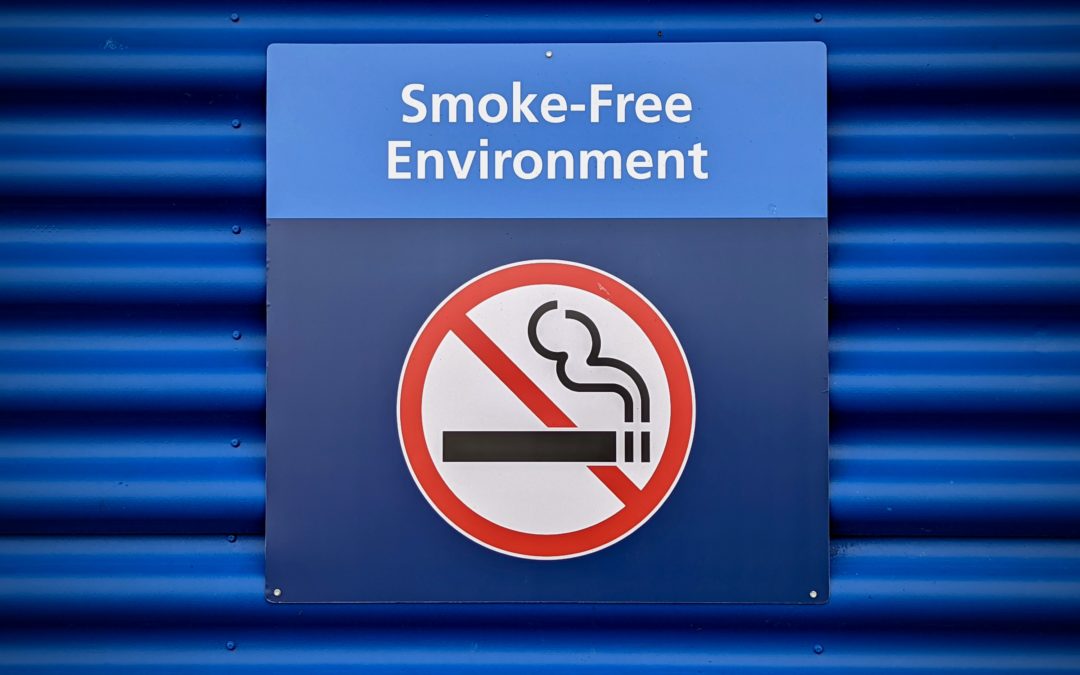Tobacco smoking is a public health crisis. Approximately 34.1 million adults in the United States regularly smoke cigarettes. It’s the leading cause of preventable disease and death in our country, including the reason that 1 in every 5 lives are tragically lost every year (CDC).
But let’s zero in on our specific communities: A whopping 19% of lesbian, gay, and bisexual adults smoke cigarettes, compared to 14% of heterosexual adults (CDC). LGBT women and bisexual men have the highest smoking rates, with surveys also showing that transgender people are more likely to smoke than their cisgender peers (Action on Smoking and Health).
Why do people smoke? For many, it’s an addictive habit that can provide temporary stress relief, alleviate boredom, or allow one to socially bond with fellow smokers. For LGBT people in particular, smoking can be a coping mechanism to deal with societal stressors related to gender or sexual orientation – including stigma, rejection after coming out, isolation, or discrimination (smokefree.gov).
For older LGBT adults, it’s no surprise that many have a longer history of nicotine addiction. There was greater social acceptability and peer pressure around smoking in the mid-20th century. Historically, pro-smoking LGBT bars provided one of the few safe spaces for our community (American Lung Association). Today, targeted marketing by the tobacco industry at Pride festivals and other LGBT-specific events don’t help (U.S. Food & Drug Administration), and neither does the fact that many LGBT advocacy organizations don’t prioritize tobacco control as a health issue (American Lung Association).
Despite the many reasons our community is prone to smoking tobacco, it’s effects shouldn’t be ignored. There’s a slew of potentially debilitating, long-term health consequences. Medical conditions that smokers can develop at higher rates include stroke, cancer, heart disease, lung diseases, diabetes, and more (CDC). The statistics are shocking: Smoking tobacco doubles the risk of dying from stroke and makes people 15-30x more susceptible to developing lung cancer. For older adults, it can even impact cognitive functioning and increase the risk of developing Alzheimer’s disease (The Alzheimer’s Organization).
The health risks don’t stop there. In addition to smoking rates being correlated with poorer mental health, sexually active men who smoke are more likely to acquire HIV/AIDS. Smokers living with HIV are at higher risk of developing respiratory disease and various cancers. It also puts people at heightened risk of complications and death during surgery – including transgender and nonbinary people who choose to undergo gender affirming surgeries. (Action on Smoking and Health) In other words – It’s never too late to prioritize your health by quitting!
Of course, smoking cessation isn’t a cake walk. It’s a journey that requires persistence – especially for our community. Some studies show that LGBT people are less likely to quit than non-LGBT people, and that we’re five times less likely to call a smoking Quit Line. Since LGBT folks are less likely to have health insurance, this can present a barrier to accessing cessation medications and therapeutic interventions (Tobacco Free Life). However, some research is promising: Studies have shown that while older adults are less likely to attempt quitting than younger folks, they are twice as likely to be successful (NIH)!
If you want to quit smoking, there is hope. You aren’t alone. There’s an array of practical resources to help jumpstart your journey today:
· Talk to your doctor about prescription medications, nicotine replacement therapy (such as the patch or gum), counseling, or other methods to assist with smoking cessation. If you don’t have an LGBT friendly healthcare provider, the Gay and Lesbian Medical Association might be able to help!
· Call a smoking quit-line: 1-800-QUIT-NOW (1-800-784-8669) or 1-877-44U-QUIT (1-877-448-7848)
· Start a personalized Quit Plan on smokefree.gov to set tangible goals and motivate yourself to quit smoking.
· Chat with someone for free online through LiveHelp if you’d like social support or additional resources to assist you on your journey.
· Download the quitSTART app for tips, inspiration, and challenges to help you quit. It’s available in the Apple and Google Play stores.
· Sign up for daily text messages through SmokeFreeTXT by texting QUIT to 47848 to help encourage you in your smoking cessation journey.

